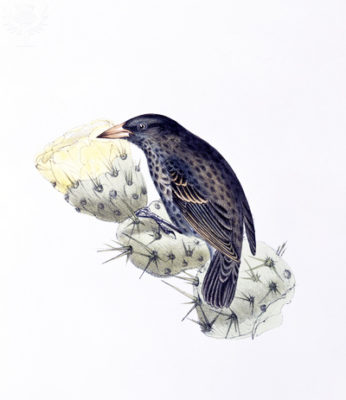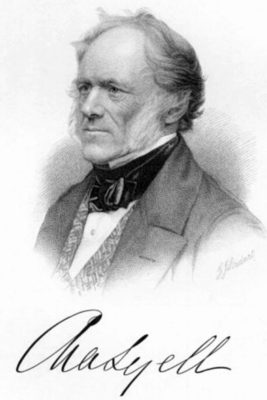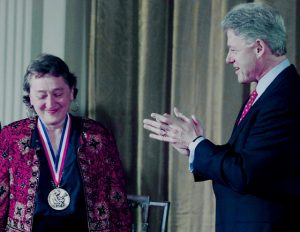 “Natural selection” is the name Charles Darwin used to describe the mechanism driving evolution and the origin of species. The title of his book was The Origin of Species by Means of Natural Selection. Natural selection was the “means” of evolution, the fundamental tenet of Darwin’s theory.
“Natural selection” is the name Charles Darwin used to describe the mechanism driving evolution and the origin of species. The title of his book was The Origin of Species by Means of Natural Selection. Natural selection was the “means” of evolution, the fundamental tenet of Darwin’s theory.
Natural selection emerged as the cornerstone law of evolution following the publication of The Origin in 1859. “I do believe,” Darwin argued, “natural selection acts slowly by accumulating slight, successive, favorable variations.” Natural selection, the tenet of Darwin’s theory, when viewed through the lens of twenty-first-century technologies, increasingly faces scientific challenges.
Tenet of Darwin’s Theory
Natural selection, for Darwin, was based on a belief, not science. As Darwin explains in The Origin of Species,
“In order to make it clear how, as I believe, natural selection acts, I must beg permission to give one or two imaginary illustrations.”
Darwin used “Imaginary illustrations” since he could not identify supporting objective evidence. Even though Darwin attempted to explain how natural selection acts with illustrations, Darwin never articulated what he meant by the term “natural selection.”
Importantly, “natural selection” is not included in The Origin’s “Glossary of Scientific Terms” index. Darwin did not use “natural selection” as a scientific term, the fundamental tenet of Darwin’s theory.
Initial Resistance
Initially, Darwin encountered resistance, even from his working colleagues. Charles Lyell (pictured right), although instrumental in advancing Darwin’s career, only gave natural selection an equivocal acceptance. In a letter to  Thomas Huxley, Darwin complained –
Thomas Huxley, Darwin complained –
“I am fearfully disappointed at Lyell’s excessive caution” and “The book is a mere ‘digest.’
Thomas Huxley, even though gaining the title of “Darwin’s Bulldog,” was tenuous about evolution advancing “slowly by accumulating slight, successive, favorable variations.” For Huxley, not only was evolution a faster process –
“until selection and breeding can be seen to give rise to varieties which are infertile with each other, natural selection cannot be proved.”
Natural selection was “unimportant,” according to Asa Gray, an influential American botanist. In a letter to Darwin said – a
“… personally, of course, I care much about Natural Selection, but that seems to me utterly unimportant compared to the question of Creation or Modification.”
Natural Selection in the 21st Century
The University of California Berkeley’s “Understanding Evolution” website, while arguing that “Natural selection is one of the basic mechanisms of evolution,” never articulates a definition of the term. The website offers an “imagine” approach –
“Darwin’s grand idea of evolution by natural selection is relatively simple but often misunderstood. To find out how it works, imagine a population of beetles.”
 Even Richard Dawkins (pictured left), a loyal Darwinist, downplays the evolutionary role of natural selection –
Even Richard Dawkins (pictured left), a loyal Darwinist, downplays the evolutionary role of natural selection –
“For simplicity, we speak of mutation as the first step in the Darwinian process, natural selection as the second stage. But this is misleading if it suggests that natural selection hangs around for a mutation that is either rejected or snapped up, and the waiting begins. It could have been like that: natural selection of that kind would probably work and maybe does work somewhere in the universe. But as a matter of fact, on this planet, it usually isn’t like that.”
Natural selection has emerged as the dark matter of evolution. Even evolutionary biologist Jerry Coyne of the University of Chicago is quick to point out that –
“We must stop pretending we understand the course of natural selection.”
In turning to the dark side, Swedish cytogeneticist, Antonio Lima-de-Faria, suggests that natural selection granted biological justification for the popular but controversial expansion of English colonialism –
“Selection is a political, not a scientific concept. At the time of Darwin, it fitted perfectly the expanding colonialism of Victorian England.”
NASA astrobiologist Chris McKay in an interview with Suzan Mazur, points to the problem with the elephant in the room –
“It would be great to have some way to detect natural selection, but we’re unlikely to be able to. We have a hard time detecting it here on Earth and showing that it’s occurring.”
National Medal of Science award winner by President Bill Clinton, Lynn Margulis (pictured right)
(pictured right)
“Darwin was brilliant to make ‘natural selection’ a sort of godlike term, an expression that could replace ‘God,’ who did it—created forms of life. However, what is natural selection, really? It is the failure of the biotic potential to be reached. And it’s quantitative… Natural selection is intrinsically an elimination process.”
In the book Mind and Cosmos, Why the Materialist Neo-Darwinian Concept of Nature is Almost Certainly Wrong (2012), author Thomas Nagel from New York University, published by Oxford University Press addresses the significance of natural selection in the origin of life –
“It is prima facie highly implausible that life as we know it is the result of a sequence of physical accidents together with the mechanism of natural selection.”
In the search for the significance of Darwin’s “imaginary” concept over the past 150 years since the publication of The Origin of Species, natural selection has emerged as no more than an elimination process – intensifying Darwin’s dilemma.
Refer to the Glossary for the definition of terms and to Understanding Evolution to gain insights into understanding evolution.

